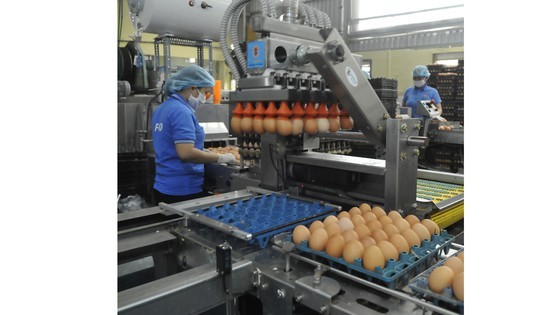
One of the problems reported by many foreign enterprises when working with competent authorities is the lack of consistency in how to implement the State regulations in provinces. Besides, specialized regulations are still unreasonable, causing difficulties for enterprises. Ms. Magdalena Krakowiak, Chairwoman of the International Quality Medicines (IQMED) – Generic & Biosimilar Sector Committee, said that European enterprises have strengths in investing in the pharmaceutical manufacturing industry. However, it is difficult to invest and develop market share in Vietnam because many regulations cannot be met.
For instance, the regulations relate to quality assurance and traceability of pharmaceutical products imported into Vietnam. Accordingly, the Ministry of Health requires that the content of the Certificate of Pharmaceutical Product (CPP) must include the standards of finished products, pharmaceutical substances, and medicinal materials, the names and addresses of the manufacturers of pharmaceutical substances and medicinal materials. This is impossible in the case of medicines involving many different facilities in the global supply chain.
Another shortcoming is that limited vision in planning has led to scattered export processing and industrial zones in many provinces that have not created the connection in infrastructure and have not promoted the connection among enterprises. Industrial parks have a small scale; some are located in the residential areas due to rapid urbanization speed; there are many industrial parks but they did not save enough land for service and social infrastructure projects, such as worker accommodation, worker centers, health centers, trade centers, and education centers.
Infrastructure outside the fence of the industrial parks such as roads, bus stations, internet transmission lines, telephone lines, water pipelines, overhead power lines, and resettlement areas, has not been planned and built synchronously with the planning and construction of the industrial parks. This situation has caused difficulties for enterprises in the process of operating or expanding investment.
Another problem raised by enterprises is that the localization ratio of supporting industry products of Vietnamese enterprises is extremely low. In the past three years, with strong support policies from the Government, this ratio has gradually increased from less than 10 percent to about 30 percent but remained low in comparison with the localization ratio of other countries in the region. Foreign-invested enterprises still depend on imported supplies, so it is difficult for them to expand production in Vietnam. Therefore, it is necessary to strengthen the production and supply capacity of Vietnamese enterprises.
To untie the knot in investment attraction, the Government needs more powerful actions in handling ministries and departments, especially the heads of ministries and departments, if they do not reduce administrative procedures and regulations on specialized inspection but intentionally cause difficulties for enterprises. This is a painful but necessary solution to purge the managerial staff and quickly ‘untie’ enterprises for them to invest as well as develop.
At the same time, Mr. Dao Xuan Duc, Deputy Director of the Ho Chi Minh City Export Processing Zone and Industrial Park Authority (HEPZA), said that it is necessary to establish specialized industrial parks combined with increasing attracting raw material manufacturers, especially raw materials for key industries. This is the foundation to accelerate the completion of the global supply chain, helping enterprises to lessen dependence on imported raw materials and reduce risks caused by fluctuations in the international market, step by step improving competitiveness and entering deeply into the market in general.
As for specific cities like Ho Chi Minh City, it is necessary to build industrial parks specialized in supporting industry using the budget to regulate the land rent rates, to attract investment in the sectors according to the goals of the city and the Government; at the same time, research policies to support infrastructure developers to build high-rise factories to improve the land-use efficiency and lower rental costs.
According to Associate Professor - Doctor Tran Hoang Ngan, Head of the HCMC Institute for Development Studies, it is time to not attract investment at all costs but to select investors under a set of criteria. Specifically, it is necessary to focus on encouraging the development of hi-tech industries and providing high-tech services. Of which, focusing on supporting investment projects on technological innovation in the direction of automation and the applications of robotics and artificial intelligence in production, management, and administration. Promoting the development of high-tech industries will have a pervasive impact on most industries, creating high-quality products for the economies.
























